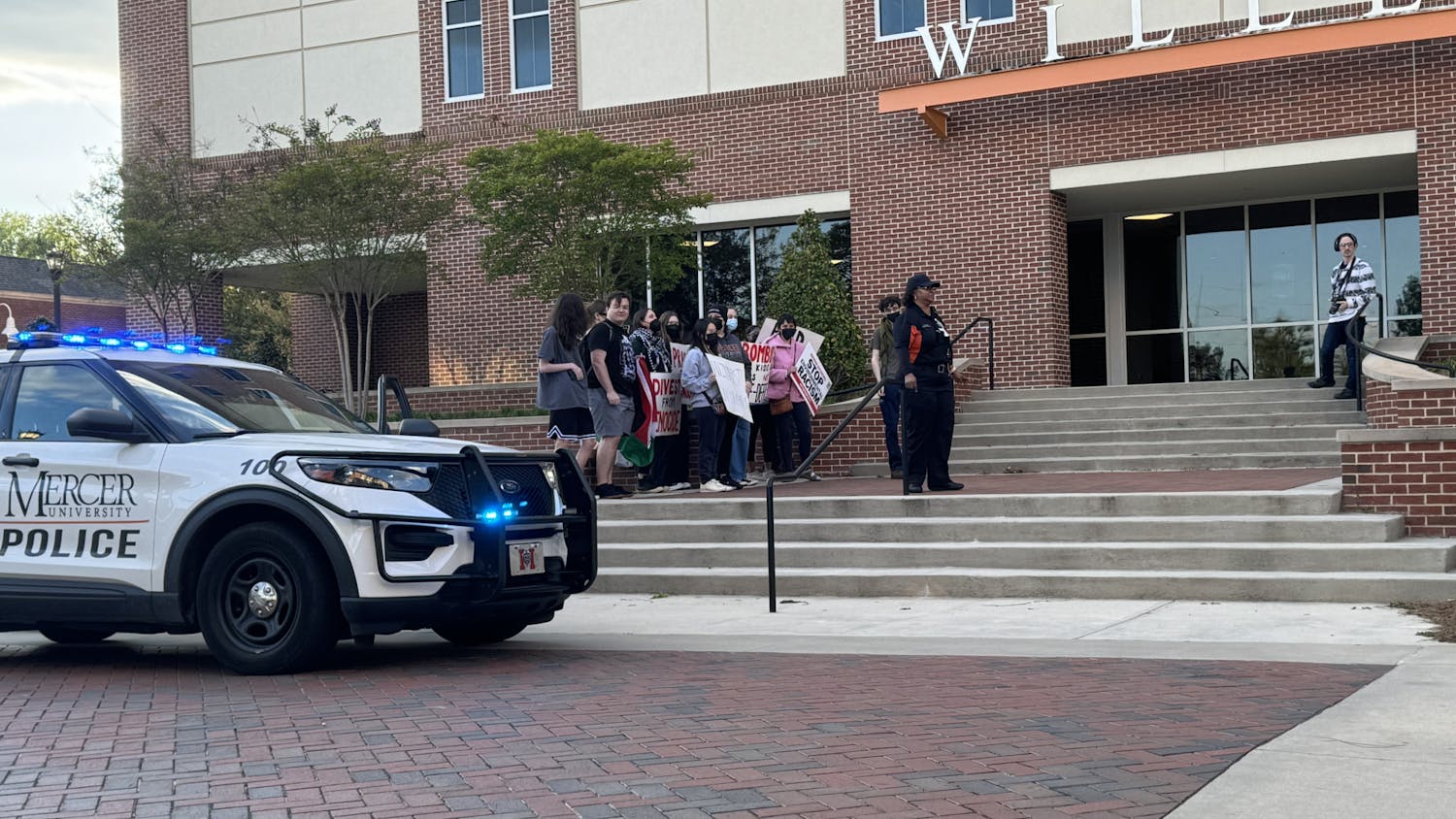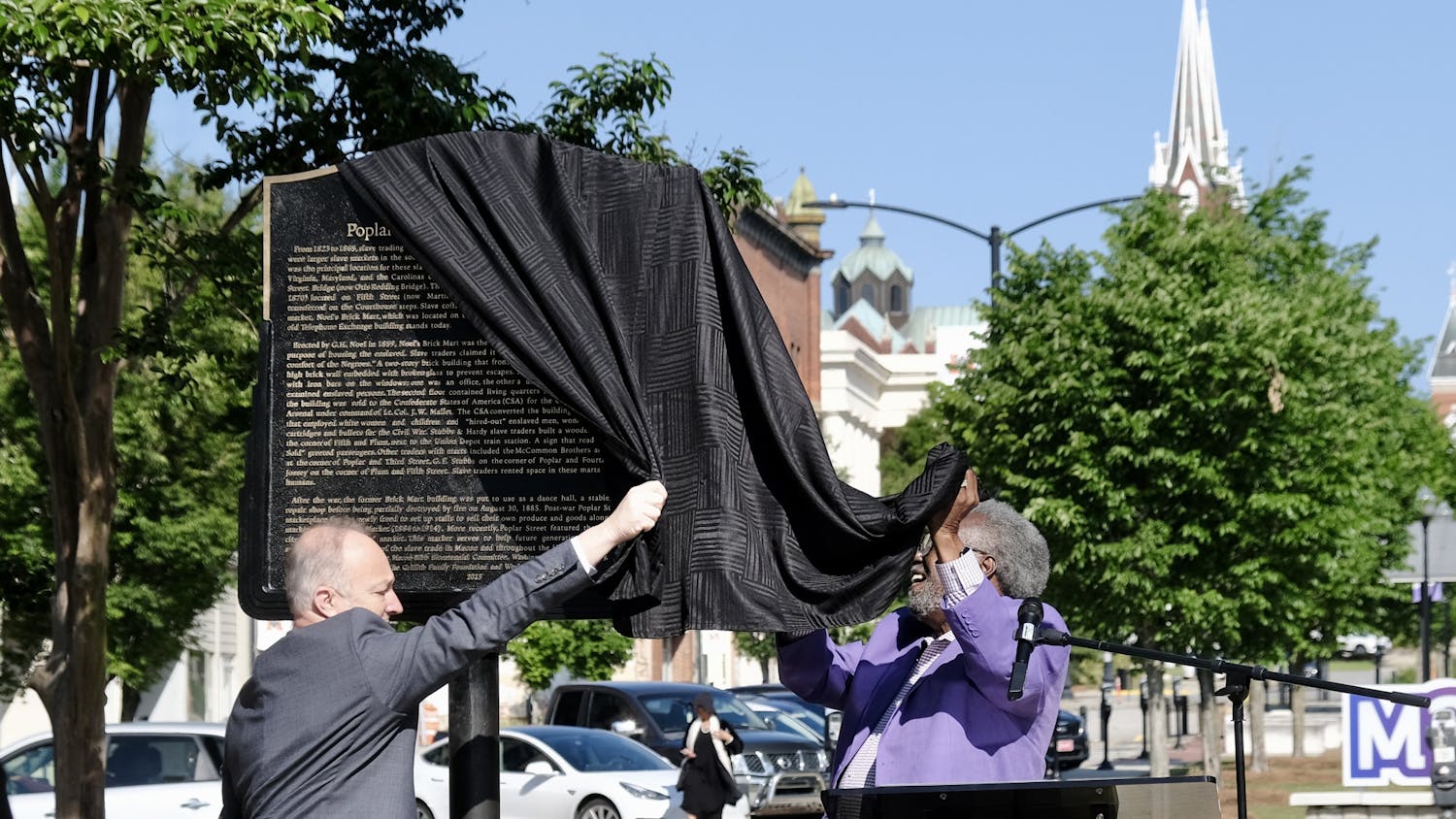Pre-health students designed a week-long event titled “When We Talk About Sex, Let’s Be Honest” to combat uninformed or negative dialogue about sex on campus for their senior Service Scholars project.
“We think that there really is no harm in talking about [sex],” said Natalie Wharton, a senior on the project.
Wharton and Ansleigh Seaver, Wharton’s partner, both hail from the West Coast, where they said they received a comprehensive sex education.
”When we came here and realized that many of our classmates did not, we were pretty shocked,” Seaver said. “I feel like there are students who nonetheless are having sex, but are going in blind.”
They said the overarching problem isn’t that sex isn’t discussed at all on campus, but that it usually only comes up in terms of Title IX. Wharton and Seaver said they hope that their project will help redirect conversations about sex so that they cover more than when sex goes wrong.
 Natalie Wharton
Natalie Wharton
“Students have sex. That’s a fact,” Wharton said. “We would hope to God that most sex is not about sexual assault or rape. Most sex is a positive experience.”
While planning “Sex Week,” they sent out a survey to the Mercer student body asking which sex-related topics their peers were most interested in. They based their programming on those responses.
The first event, “What’s Normal Down There?” will take place on Oct. 16.
Macon OB/GYN Dr. Ken Harper will give a presentation on reproductive and sexual biology to ensure that students have more than the often lackluster high school sex-ed. He will speak about normal physiological responses to sex, sexual dysfunction and STIs.
Seaver and Wharton said that when they approached the Sexual Assault, Hazing and Alcohol Prevention Education organization for collaboration on the project, the sexual assault awareness group proposed hosting a Student Sexuality Panel.
The panel will be hosted on Oct. 17 in the form of question and answer where audience members can text their questions to moderators who will then choose which ones to ask the panel to ensure a respectful, non-invasive environment while still getting students’ questions answered.
The sexual assault awareness group also emphasized recruiting panelists that identify not just as straight but from all across the LGBT spectrum to speak.
“The whole week is going to be very LGBT-inclusive,” Seaver said.
On Wednesday, Atlanta sex therapist Courtney Keter, who produces the podcast “Let’s Talk Sex” and has been featured in Allure Magazine, will discuss how to open up lines of communication between sexual partners to ensure that sex is consensual, positive and satisfying for all involved.
The final event, Thursday’s “Myths and Facts About Male Sexuality” lecture, will be led by Mark Prevette, who specializes in transgender male transition therapy.
To increase interactivity, leaders have planned various games related to each night’s topic for which students may win t-shirts, stickers and other small prizes.
However, Seaver and Wharton said that they want to make sure that the student body doesn’t feel pressured to participate.
“We don’t want this to be in your face,” Seaver said.
They said that another reason for this week is because they want Mercer to be a sex-positive environment where sex is not taboo. They also advocate for increasing contraceptive use on Mercer’s campus.
“I want people to be comfortable with their bodies and their sexualities and not feel shameful,” Wharton said. “I [hope the project will help students to] know that their resources are here, know that their peers are also talking about [sex].”
“I would love it if every single person on this campus felt comfortable saying the words ‘penis’ and ‘vagina,’” Seaver said.
Service Scholars plan week-long event to foster informed conversations about sex





